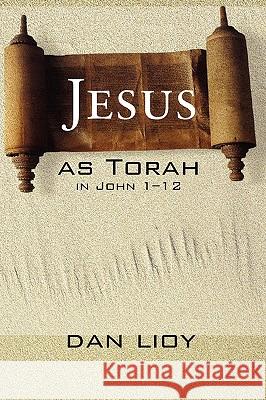Jesus as Torah in John 1-12 » książka
Jesus as Torah in John 1-12
ISBN-13: 9781556354755 / Angielski / Miękka / 2007 / 320 str.
Jesus as Torah in John 1-12
ISBN-13: 9781556354755 / Angielski / Miękka / 2007 / 320 str.
(netto: 146,80 VAT: 5%)
Najniższa cena z 30 dni: 152,04
ok. 16-18 dni roboczych.
Darmowa dostawa!
In this study of John 1 12, the author develops the thesis that Jesus is the divine, incarnate Torah, and that Jesus as Torah is the conceptual center of the Fourth Gospel. An overarching goal of the treatise is to explore the Evangelist s portrait of Jesus as the fulfillment of the Mosaic law. Connected with this aim is the central thesis that the Messiah appears in the Gospel of John as the realization of all the law s redemptive-historical types, prophecies, and expectations. A corresponding major claim is that those who trust in Jesus for eternal life and heed his teaching satisfy fully the requirements of the moral law recorded in Scripture. An examination of John 1 12 substantiates the truth that Jesus is the perfection of the gift of the Tanakh. He existed in the beginning with the Father and Spirit as God. The eternal Torah is light and life, fulfillment and joy, in fellowship with the triune God for all eternity. The divine Tanakh, by becoming incarnate, revealed the glory of the Father and made the fullness of God s grace and truth available to humankind. The living Word not only provides salvation but in so doing unveils the loving and redeeming heart of the Father for all to see. The Son of God is the one to whom all the Old Testament luminaries such as Abraham, Jacob, Moses, and Isaiah pointed, and in whom their eschatological hopes were realized. The Anointed One is greater than and supreme over all the religious institutions once associated with the Jerusalem tabernacle and temple. Even such Jewish festivals as the Feast of Tabernacles, Pentecost, Dedication, and Passover find their fulfillment in the Messiah. This volume is appropriate for personal study and is also suitable as a college and seminary text. Dan Lioy is a postgraduate supervisor with the South African Theological Seminary. He is the author of In Search of Ultimate Reality (2005), The Decalogue in the Sermon on the Mount (2004), and The Book of Revelation in Christological Focus (2003)."
In this study of John 1–12, the author develops the thesis that Jesus is the divine, incarnate Torah, and that Jesus as Torah is the conceptual center of the Fourth Gospel. An overarching goal of the treatise is to explore the Evangelist’s portrait of Jesus as the fulfillment of the Mosaic law. Connected with this aim is the central thesis that the Messiah appears in the Gospel of John as the realization of all the law’s redemptive-historical types, prophecies, and expectations. A corresponding major claim is that those who trust in Jesus for eternal life and heed his teaching satisfy fully the requirements of the moral law recorded in Scripture.An examination of John 1–12 substantiates the truth that Jesus is the perfection of the gift of the Tanakh. He existed in the beginning with the Father and Spirit as God. The eternal Torah is light and life, fulfillment and joy, in fellowship with the triune God for all eternity. The divine Tanakh, by becoming incarnate, revealed the glory of the Father and made the fullness of God’s grace and truth available to humankind. The living Word not only provides salvation but in so doing unveils the loving and redeeming heart of the Father for all to see. The Son of God is the one to whom all the Old Testament luminaries—such as Abraham, Jacob, Moses, and Isaiah—pointed, and in whom their eschatological hopes were realized. The Anointed One is greater than and supreme over all the religious institutions once associated with the Jerusalem tabernacle and temple. Even such Jewish festivals as the Feast of Tabernacles, Pentecost, Dedication, and Passover find their fulfillment in the Messiah. This volume is appropriate for personal study and is also suitable as a college and seminary text.Dan Lioy is a postgraduate supervisor with the South African Theological Seminary. He is the author of In Search of Ultimate Reality (2005), The Decalogue in the Sermon on the Mount (2004), and The Book of Revelation in Christological Focus (2003).











